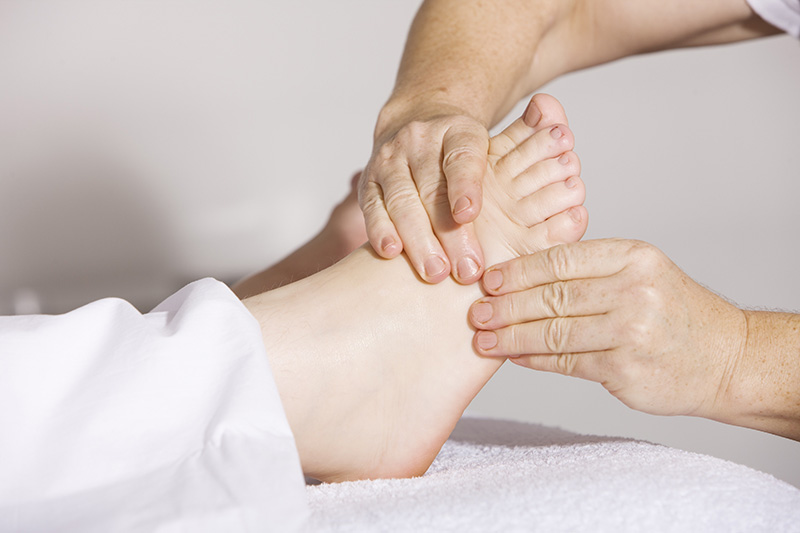This is second part of the guide of when getting a massage isn’t a good idea. You can view Part 2 here.
The best massage centers, such as Massage Heights that offers a wide range of massage services, will refuse certain clients who aren’t considered as suitable candidates. Keep in mind, furthermore, that it isn’t a matter of discrimination based on appearance, race and age, among others, but of the presence of certain conditions that preclude professional massage services. For this reason, it’s always best to disclose underlying injuries and illnesses, among other factors, which will affect your suitability as a candidate for massage.
In some of the following cases, the massage therapist may continue massaging unaffected areas (i.e., a local massage) while avoiding other areas. Setting realistic expectations before a massage begins is then a must, especially when you’re expecting a full body massage yet certain areas aren’t treated.
If You Have an Injury
The presence of an injury usually precludes massage. But this isn’t true in all instances – you and your massage therapist will discuss which part of your body has an injury and, thus, shouldn’t be given treatment. Injury, in other words, is a local contraindication in that the affected area shouldn’t be at the receiving end of a massage.
Most injuries, such as sprains and strains, are contraindicated for 72 hours, at the very least. You may want to massage the injured area since it can bring relief but it isn’t recommended since it can make matters worse.
For as long as you have an acute injury, the affected area will not be treated by a massage therapist no matter how much you beg. You can wait for a few days before booking an appointment.
If You Been Recently Vaccinated
While there are only a few vaccinations that adults are encouraged to get, being recently vaccinated is a local contraindication for massage. Well, at least, you have to avoid getting a professional massage for the next few days after the injection.
There are three reasons for the local contraindication, namely:
- The injection site can become painful and/or irritated. You don’t want it to be more so than it already is with a localized massage, such as on your arms.
- There may be an immune response to the vaccine, a relatively common occurrence with the flu vaccine. The symptoms of the immune response are similar to the ones experience with an actual flu infection, such as headaches, stuffy feeling in the chest, and even fever.
- It’s important to avoid a massage for a few days after getting a flu vaccine – or any vaccine, for that matter – until your doctor can determine whether the side effects are the result of the vaccination or of an underlying illness. Since the flu vaccine is usually given during the common cold season, you may actually have become infected with an entirely different virus at the same time you received the flu shot.
- Certain massage techniques can increase blood circulation in the local area where these are performed. These techniques are contraindicated because they interfere with the specific dispersion rate of vaccines in the body. (While there’s little evidence of the effects of circulatory massage on a recent vaccination in this regard, it’s still better safe than sorry)
When in doubt, you can also ask your doctor about getting a massage after a vaccination. Again, better safe than sorry, especially as massage isn’t for everybody.
If You Have Rashes
In most cases, rashes are a local contraindication, too, in the sense that your massage therapist can skip the affected areas of your skin and focus on the unaffected areas. Obviously, pain, irritation and open skin associated with skin conditions (e.g., psoriasis and eczema) are signs that the affected areas shouldn’t be massaged, not even applied with massage oils.
Be sure to let your massage therapist know where your rashes are, as well as what kind these are and their severity, perhaps even let them visually inspect the rashes. You and your massage therapist can then make the proper decisions whether a local massage on these areas is okay or not.
What about if you’re a pregnant woman or a new mother – should you get a massage? You may want to get it as many times as possible because you have so many aches and pains that come with bearing a child or giving birth to a baby. Even a brisk back rub will give significant relief to back pain so just imagine the benefits of a full body massage.
Yes, you can get a prenatal and a perinatal massage but be sure to check that the massage therapist is actually qualified to give it. You may want to avoid day spas since there’s the risk of an unqualified person being assigned to your case just because she’s next in line, or some other reason. You have to remember that there are certain places in your body that shouldn’t be massaged by an unqualified person, such as your legs and ankles with its swelling, lest you suffer from side effects.
